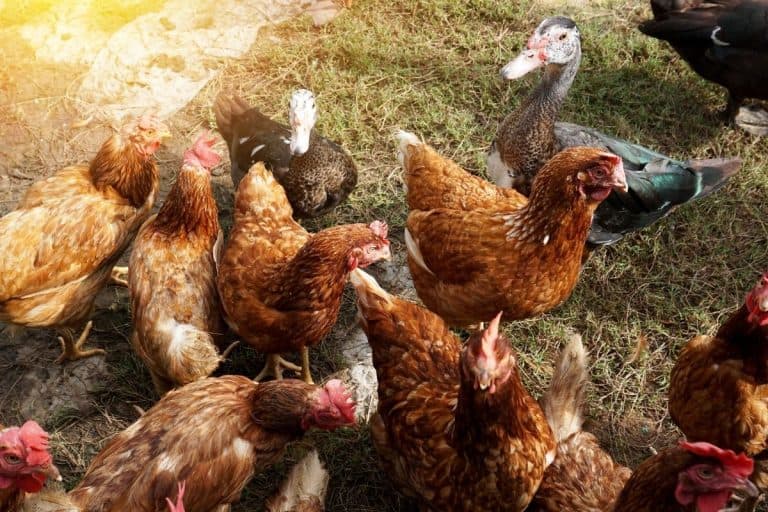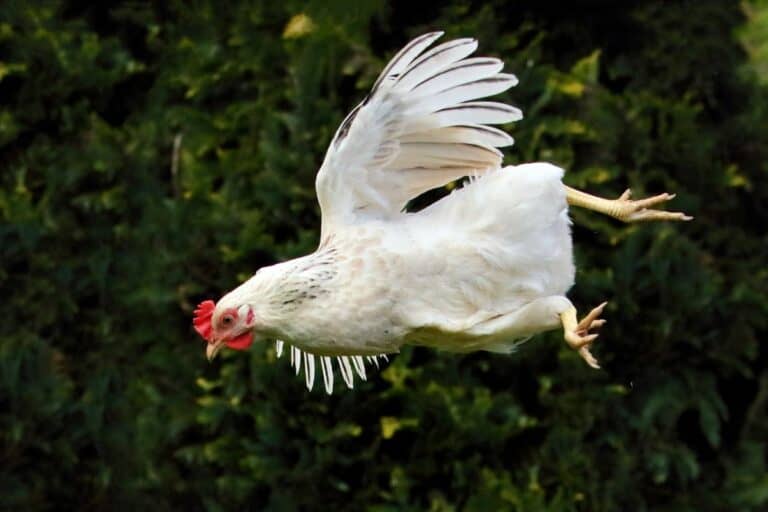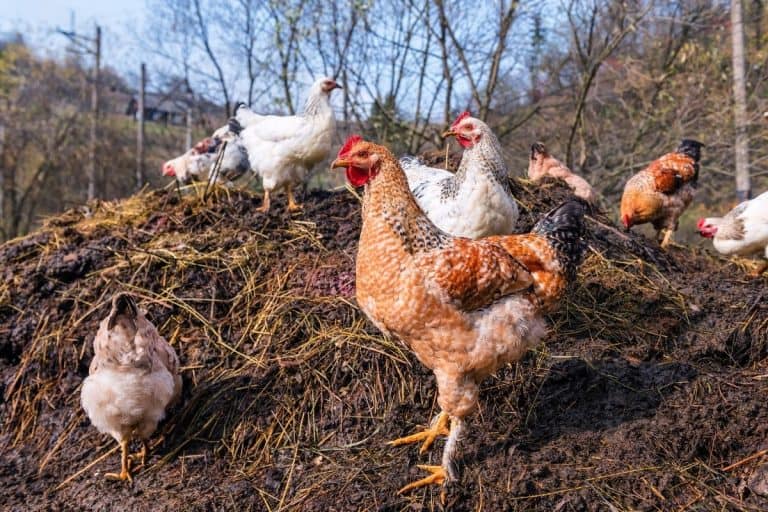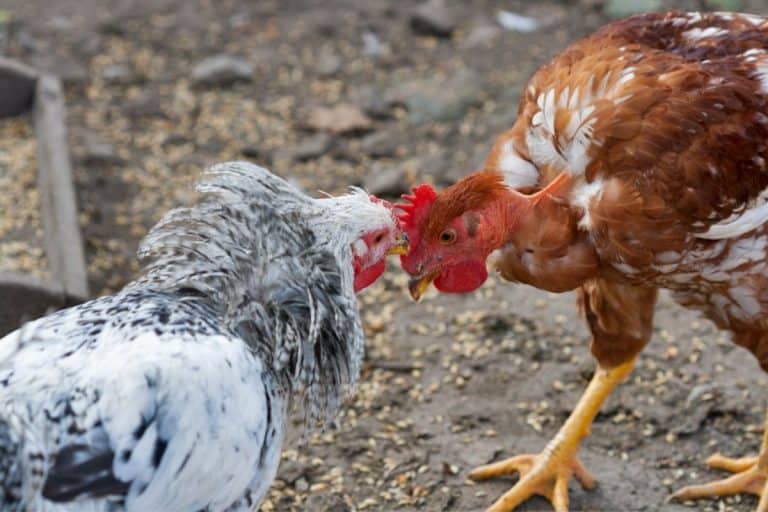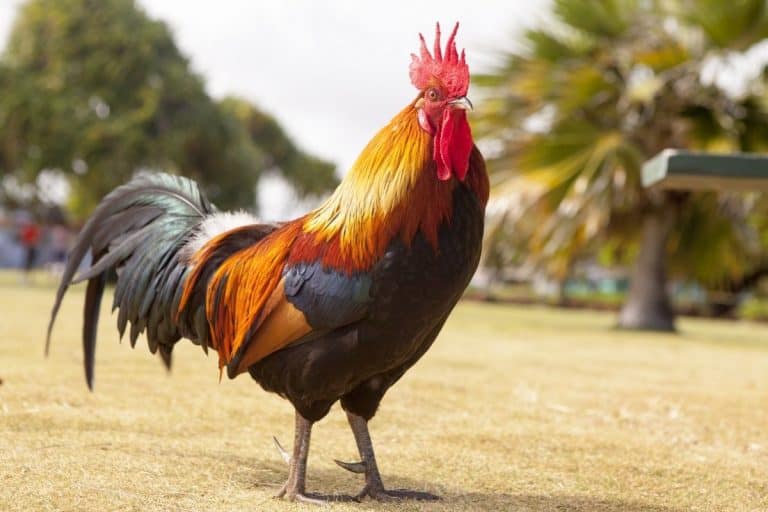Is Mixing Chicken Breeds Bad? (Pros & cons)
Raising chickens is always an exciting adventure, and having a flock of feathered friends that have different looks and personalities can mean even more entertainment, as well as a variety of egg colors and sizes. So, if you’re wondering, is it bad to mix different chicken breeds in your flock? You’ve come to the right place!
Mixing breeds of chickens is just fine, as long as one chicken isn’t being singled out or bullied by the rest of the flock for being different.
A flock of chickens with a variety of different breeds can be a visual spectacle of colorful plumes and crests, with some grazing casually while others run and jump around in exploration. Not to mention all the different shades of eggs! This article will dive into the reasons for having a mixed flock and how you can raise a fun menagerie of chickens.
Hey chicken buddies: Quick heads-up before going further! I've put together a list of stuff I use and love for my flock. If you're curious about what keeps my hens happy, click here to find out.
What Can Happen If You Mix Chicken Breeds?
It’s pretty uncommon for something bad to come from mixing breeds of chickens in one flock. Worst case scenario, someone will get picked on for being the odd man out. And it’s hard to say if ‘picked on’ is the right word. The other chickens could be confused as to why one chicken looks different from the others and is merely trying to help by trimming back someone’s crest or cutting back their foot plumage.

A way to avoid this issue of singling the different chicken out is by having several chickens of one breed. Having just one chicken of a specific breed while the others all look the same can cause some issues. Chickens have an idea of what they think they should look like and when one is distinctly different, it can cause some confusion and unwanted pecking.
Wait, I have some recommendations for you!
Before you go any further, I want you to take a look at some of the recommendations I've handpicked for you. I think these are essential items you should have for your chickens flock. You can check them out and buy them directly from Amazon.
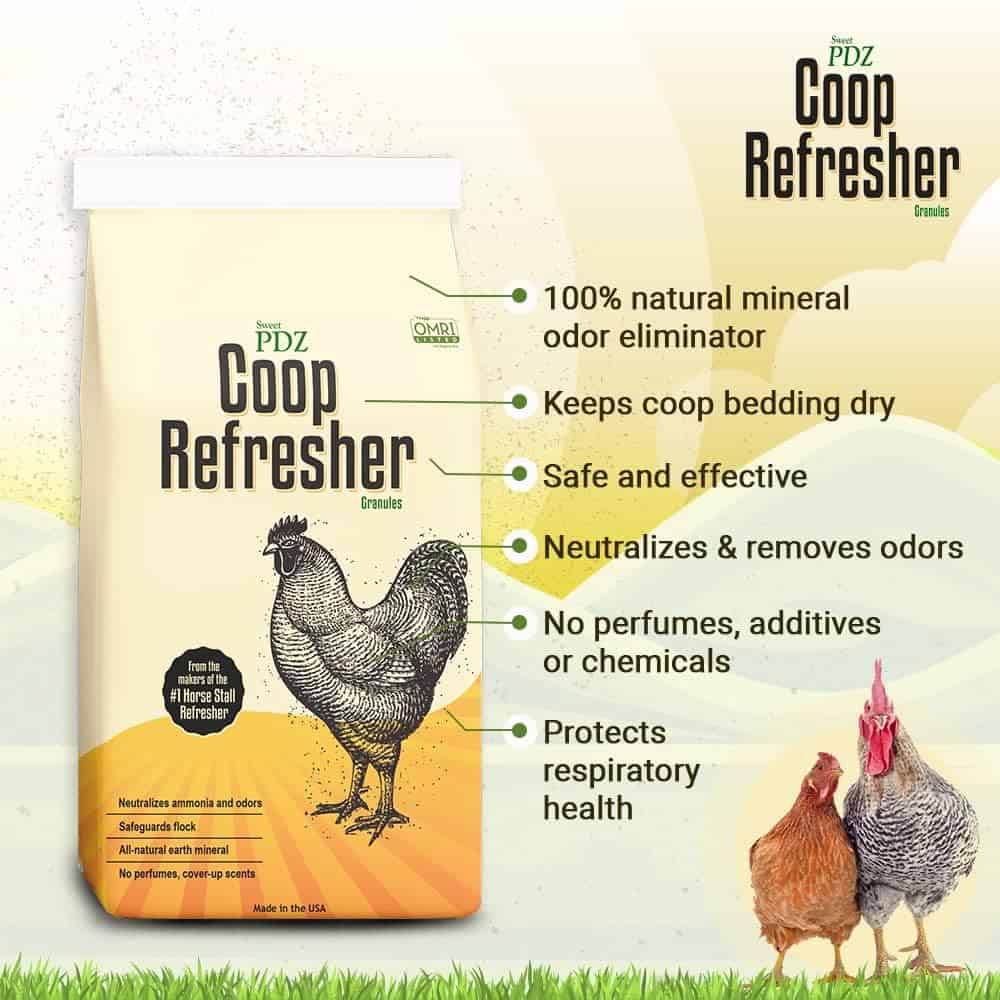 |  | 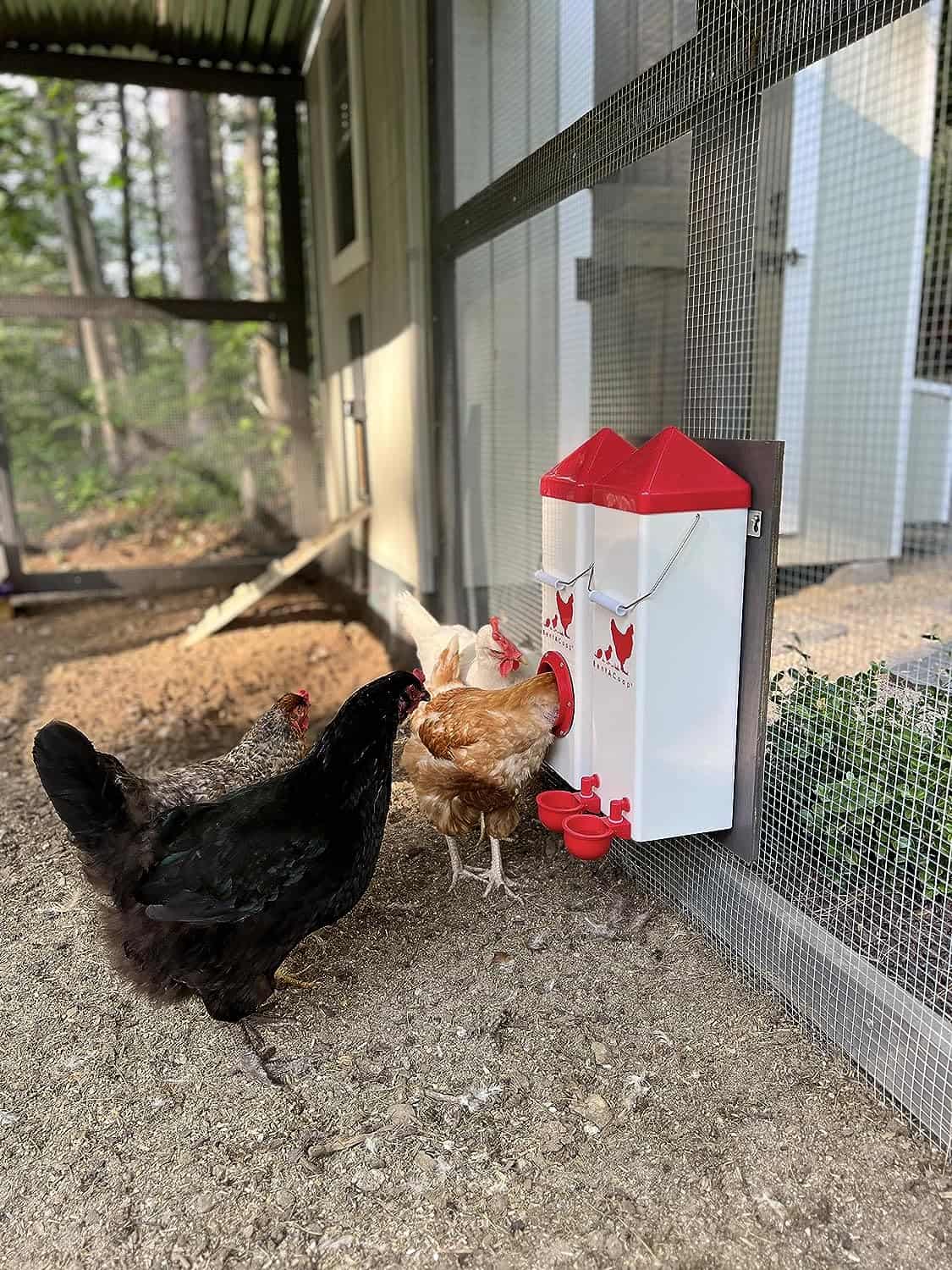 |  |
| Essential accessory for your coop | No more tripping over hoses! | Predator protection made easy | Comfort + style is possible |
What Are The Benefits Of Having Different Breeds Of Chickens?
Beauty and entertainment is the main benefit of having different breeds of chickens. However, there are many fun reasons for having different breeds of chickens in your flock.
They are really pretty superficial though, you won’t necessarily get any health benefits or better eggs. Maybe different colored eggs, but their nutritional value will stay the same.
A Spectacle Of Feathers
The special show of feather colors and fancy plumes will surely entertain the eye while you spy on your chickens from the back window or porch. Depending on what breeds of chickens you have will obviously dictate how they look. The Rhode Island Reds are going to be medium-sized and red, while some Leghorns are white with a larger build. The Brahmas are usually white and grey and Jersey’s are black, with both of them being bigger than average.
Pretty Personalities
Chickens can be so funny and curious or shy and quiet, it just depends on the breed. The vastly different personalities that vary from breed to breed will bring plenty of intrigue and fun to the flock’s daily activities as some of them are more stoic and others are more active and silly.
A Beautiful Basket Of Eggs
Not only are the physical appearances and personalities of the chickens exciting, but let’s talk about the eggs! Your egg collecting basket will be blessed with a wide array of colors, tones and hues that will tease the eye! Your friends will love receiving your gift of eggs as they are truly a beautiful range of white, brown, green and blue.
What Breeds Of Chickens Mix Well?
It is true, some breeds mix better with others. There is a formula one should consider when looking into bringing multiple breeds into your flock. Coop size and climate tolerance are extremely important when deciding which chickens you will want. The personality and compatibility of the breeds are also a factor to consider, as well as your own personal preferences and desires, such as egg color and frequency.
Bantams And Larger Chickens
A bantam-sized chicken is referring to a breed of chicken that is smaller than the average chook. Some people will worry about having a smaller chicken mixed with larger ones, thinking that the bigger birds will peck and pick on the bantams. While it is likely to happen, they usually do very well together. Don’t underestimate the smaller chicken, they are frequently at the top of the pecking order due to their feisty nature.
Brahma And The Jersey Giant
These chooks can be large and in charge. The Brahma has luxurious plumes and feathered feet and is often the guard chickens of the flock. They strut around confidently and keep an eye on their surroundings while being pleasant and easy to get along with.
The Jersey Giant is known for keeping a peaceful coop and likes to avoid drama. They are friendly and calm with a mom-like personality. Both of these breeds do well when mixed with other chickens that are smaller than them. Plus, they are hearty and do well in colder and harsher climates. They will prefer a little more space in their chicken coop due to the larger size.
Cochins And Orpingtons
These two chickens are similar in size and are known for being timid and quiet birds. The Cochin and the Orpingtons are excellent starter birds due to their kind and sweet nature. They are both the type to back down from a fight and can be often picked on by other more dominant and bullying breeds of chickens.

The Cochin is larger than the Orpington, but still can be a victim of dominance issues in the pecking order. The Cochin would prefer a little more room in the chicken coop than the Orpington due to the larger size. Both breeds are soft on the inside and outside and have sweet hearts and personalities.
Both of these chooks can handle the colder weather well and are not known for many health issues. They can also adapt well to warmer climates but are prone to getting too hot due to the extra fluffy plumage.
Easter Egger And Polish
Both of these chooks can be goofy and have fun, quirky personalities. The Easter Egger is most famous for producing beautiful blue-colored eggs, which is highly desirable for some chicken raisers who are looking for more than just brown and white eggs.
The Polish chicken is a unique-looking breed with lots of voluminous crest and plume feathers. They are a silly bird and their weird antics can provide hours of entertainment. The Polish and Easter Eggers have a calm and gentle nature that makes them excellent flock mixers. As long as you don’t have aggressive breeds that may bully them.
Easter Eggers and Polish chickens can tolerate the cold but do better in warmer climates.
The Sussex
The Sussex is a well-rounded breed of chicken that is hardy, a good egg layer and does well in colder climates. They have easy-going personalities and don’t fuss too much about anything. They tend to just mind their own business and forage by themselves, making them an easy addition to your flock.
They too can handle colder climates well and also do just fine in warmer areas. The coop size doesn’t matter too much to them as they are an average-sized chicken. As long as everyone has their space, there shouldn’t be much trouble among the ladies in the coop.
Will My Different Breeds Of Chickens Fight?
It’s not unusual for chickens in a flock to fight. As a matter of fact, you should expect a squabble or two every once in a while when the pecking order is being challenged.
A lot of the time, the breed doesn’t matter, but it can certainly have something to do with it. Even if you have one breed of chicken in your flock, you would still see them being mean to each other. It’s like sibling rivalry, I suppose; sometimes fights happen.
The breed of chicken can affect how much some birds are being picked on. Some are known for being more aggressive and bullying others, while a few are more known for being submissive.
Can Different Chicken Breeds Mate?
You can most certainly breed different chickens, just like dogs and cats. As a matter of fact, many farmers and chicken raisers over the years have bred different chicken breeds together in order to achieve specific traits from both breeds.
Like someone may really want a new color of egg or a chicken that has a unique look to them, so they would then crossbreed chickens to get the desired look or effect. If you cross Faverolles and Americaunas you can end up with a unique-looking chicken that lays a green-colored egg.
Here’s the thing, if you have a rooster in your flock, he will try and mate with any and all of the hens, no matter what breed they are. You will never know what you will get!
Unfortunately, a mixed breed chicken cannot be used for any kind of show, but who cares because having a diverse and unique flock that lays beautiful and bountiful eggs is way better than a ribbon or title.
A Mixed Flock That Mixes Well
Having a mixed flock can bring loads of entertainment and beauty to your backyard of chickens. Before purchasing and intermixing chooks, be sure to do your research first and check the guide above to help you decide what breeds will mix the best in order to have a cohesive and happy flock of chickens.


